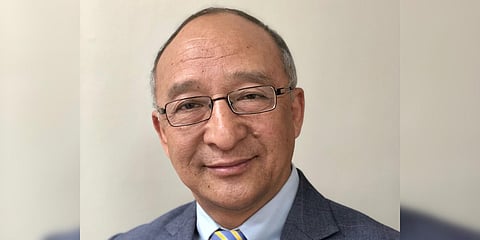

NEW DELHI: The pandemic-induced lockdown has severely affected organ transplant activities, including eye donation which has pushed many into blindness. The new head of the ophthalmology centre at AIIMS Delhi said he would be aiming to bridge this gap and strengthen eye banking.
Dr JS Titiyal, who has been appointed as the new chief of the Dr RP Centre for Opthalmic Sciences at the All India Institute of Medical Sciences, said transplants have gone down by 90 per cent during the pandemic period.
"There is a dearth of donations whereas the backlogs have increased. So the priority would be to shorten this gap and stop untimely blindness of people which can be avoided. The cases of diabetic and glaucoma have also gone up," said Dr Titiyal who continues to be the professor of ophthalmology at the premier institute along with the new responsibility.
According to the eye department of the AIIMS, there has been a drastic fall in cornea donations. From April to June last year, there was no collection of cornea. "It's a very grim situation for organ banks. The gap in terms of donation owing to the pandemic will take time to cover up. The shortage is likely to affect the demand-supply ratio as well," said Dr Titiyal.
Dr Titiyal is credited with the first live cornea transplant surgery by an Indian doctor. He was honoured with the Padma Shri in 2014, for his services to the field of medicine.
In the new role, Dr Titiyal said he has many priorities including better infrastructure for the eye centre. "I will be pushing for extension of the RP Centre for better crowd management. I also want those coming at AIIMS get the best treatment. I also aim to provide very high-tech facility. Another aspect to look out is going to be premature blindness and paediatric blindness, both cases can be avoided if early treatment begins and that will be priority," Dr Titiyal further stated.